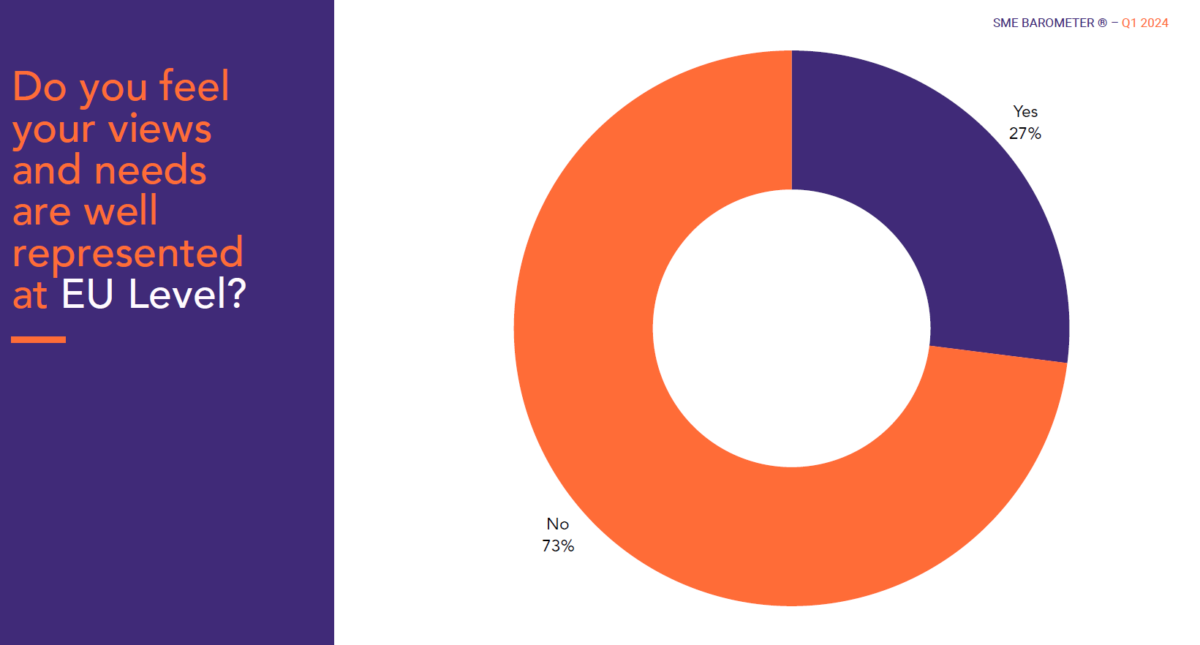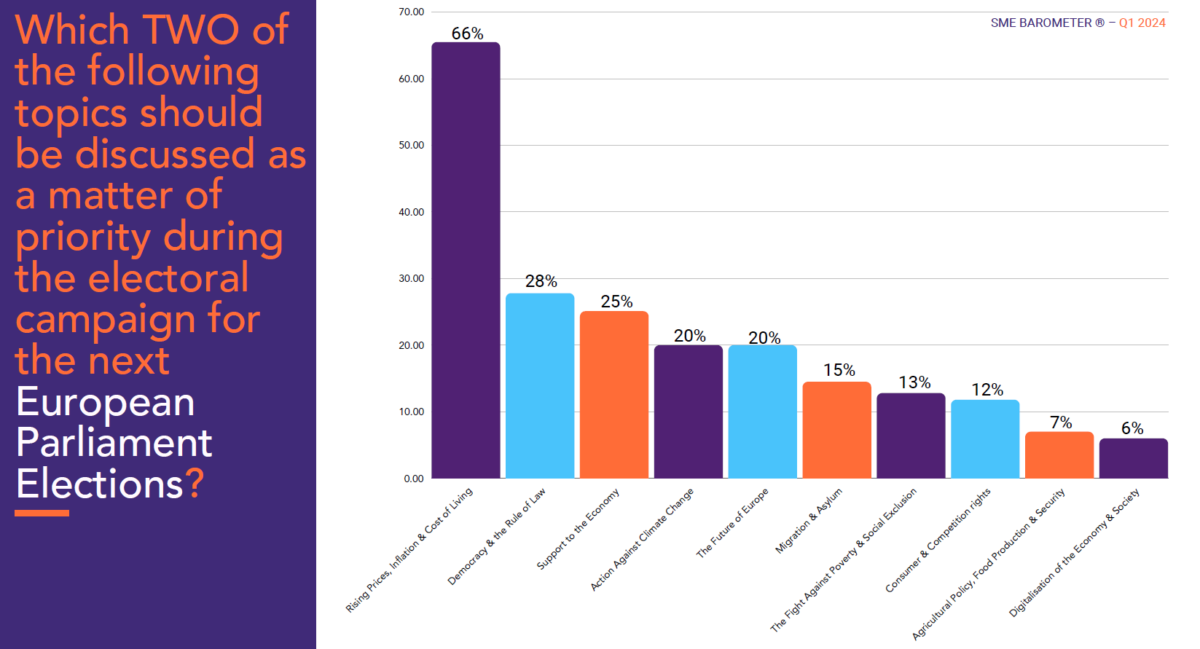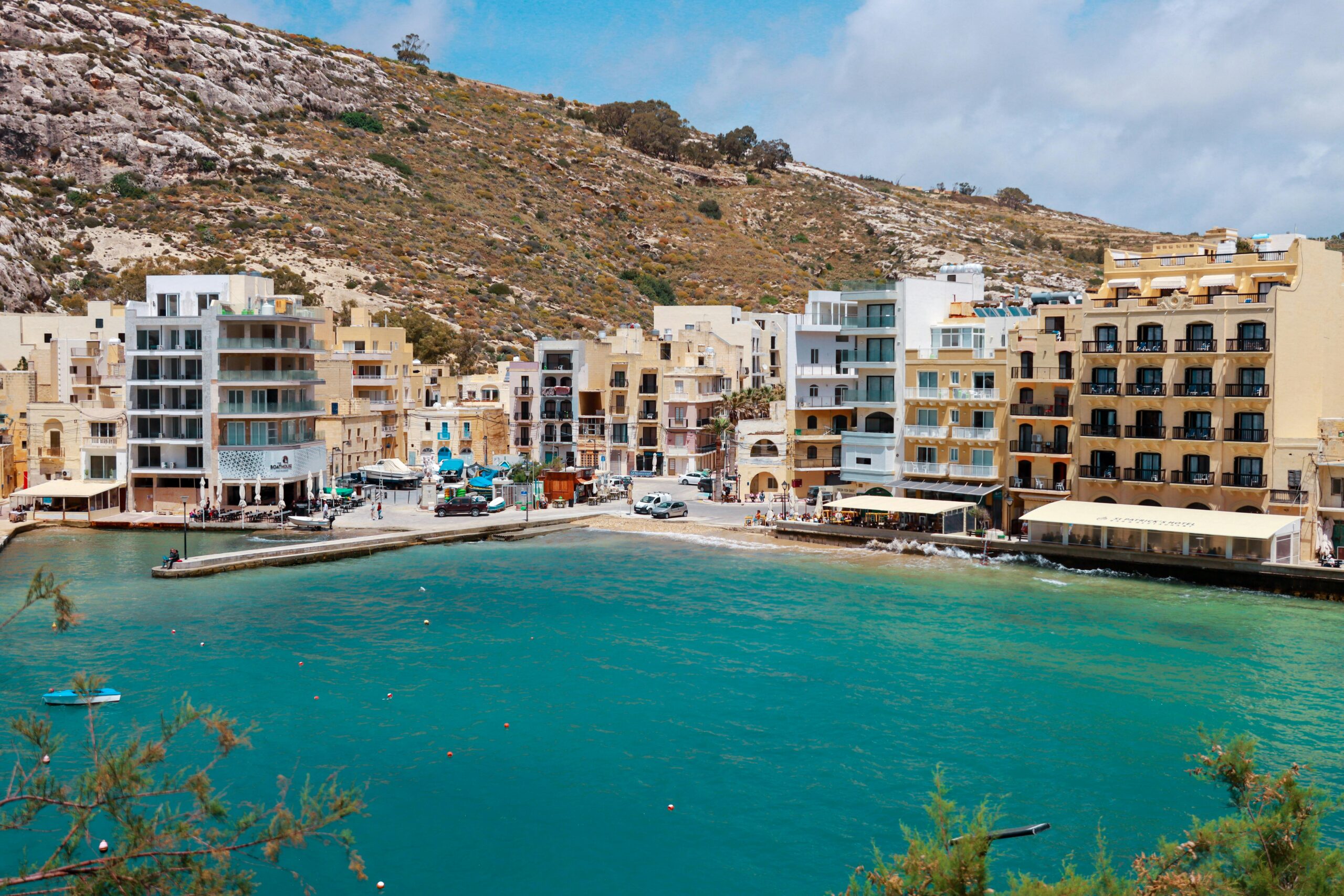A staggering 73 per cent of local SMEs feel that their views and needs are not being well represented at European Union (EU) level, according to a study compiled by the Malta Chamber of SMEs and misco.
The SME Barometer® for Q1 2024, published on Thursday (today), included the replies of 414 businesses operating in Malta, surveyed between the 19th and 30th April 2024. The margin of error for the report was 4.9 per cent. The majority of respondents (51 per cent) were businesses that had one to nine employees, 32 per cent having 10-49, 14 per cent with more than 50, and three per cent having 249 employees or more.
The SME Chamber and misco stated that it is important to note that the survey was compiled prior to the latest developments surrounding the Vitals magisterial inquiry, which has seen a number of politicians, businesses, and civil servants have charges filed against them due to links to a hospital privatisation deal that saw around €400 million in public funds being spent. The SME Chamber and misco stated that had the survey been done following these developments, there would surely have been different results. The SME Chamber, together with the Malta Employers’ Association (MEA) and the Malta Chamber of Commerce, Enterprise and Industry, released a separate statement on Wednesday in a reaction to the ongoing political situation.
With the MEP elections coming up on 8th June, the SME Chamber saw it fit to ask businesses whether their views and needs are being well represented at EU level, to which just 27 per cent said that this is the case, in sharp contrast to the 73 per cent that disagreed.
The report acknowledged that this significant disparity highlights concerns about democratic deficit, transparency, and inclusivity within EU decision-making processes.

Commenting on this, SME Chamber CEO Abigail Agius Mamo said that this figure is “not surprising,” as it has been frequently highlighted that the results from decisions taken in Europe are not being suited to Malta.
She acknowledged that Malta is a small country that has a number of issues that need to be catered for, yet the EU has frequently taken a “one-size-fits-all approach that does not help Malta, such as the Emissions Trading Scheme (ETS) Directive.”
The ETS is a key part of the EU’s strategy to address issues related to climate change, and has been described as a key tool in reducing greenhouse gas emissions. The directive obliges ships to surrender their EU allowances (EUAs) to compensate for the emissions they generate, thus leading to higher costs.
This directive came under heavy fire from Malta – through the Malta Maritime Forum (MMF), the entity which acts as the voice for the maritime industry – and a number of other Mediterranean countries for the way it was introduced, with it set to have a significant impact on the countries’ attractiveness in terms of shipping. This is especially the case for Malta, given it has become known as a transhipment hub over the years, and as a result the MMF has repeatedly stated that the EU failed to appreciate and evaluate the negative effects these regulations will have on Mediterranean countries.
Ms Agius Mamo said that there is plenty of homework that policymakers have to do before they present Malta’s position, yet this has to be done quickly, particularly due to our size and limitations.
“We have gaps in the system that need to be addressed. While it may be difficult to do so, we have to work in that regard,” she added.
In the SME Barometer®, businesses were also questioned what should be discussed as a matter of priority during the electoral campaign for the upcoming MEP elections, with rising prices, inflation, and cost of living being chosen by 66 per cent as one of the primary issues that need addressing.

There was a significant gap to the second-most chosen topic (democracy and the rule of law), with this being highlighted by 28 per cent of the respondents.
25 per cent said that there need to be discussions about support to the economy, while 20 per cent pointed towards action against climate change.
“Certain challenges need further EU interventions to support countries like Malta,” Ms Agius Mamo added.
In its list of recommendations, the report stated that Government needs to work on improving the trust in the economy and in building a positive business sentiment in general. Additionally, it said that local MEP candidates need to work with a common front to address gaps in adequate representation, instead of focusing on challenging one another.
The report also stated that there has to be public service commitment to strengthen transparency and efficacy of EU level efforts in relation to policies and national priorities.
Employee shortages remain a concern
Aside from the EU-related findings, the report also compiled the primary issues that local businesses are presently facing, with employee shortages, somewhat unsurprisingly, coming out on top as 43 per cent of businesses feel it is an issue.
This is in line with previous quarters, with it consistently being among the top two concerns.
This was then followed by challenges related to an increase in inflation (28 per cent) and unfair competition 22 per cent.
In terms of issues that the country is facing and that businesses would like Government to do something about, lack of good governance was at the top with 33 per cent, despite not including the sentiment emerging from recent developments from the Vitals inquiry.
Overpopulation and increase in inflation were second and third at 31 per cent and 30 per cent, respectively.
db Foundation raises €8,419 for Karl Vella Foundation with MasterChef Malta Charity Dinner
These events form part of the db Foundation's ongoing commitment to supporting vulnerable members of society through impactful initiatives
Residential property prices rise by 5.7% in first quarter of 2025
The new figures show continued growth in Malta’s property sector
Youth4Entrepreneurship Gozo 2025: Youth invited to propose innovative digital solutions
The initiative aims to empower youth to become active contributors to Gozo’s development by addressing local challenges






